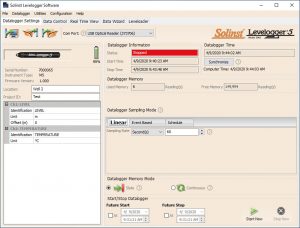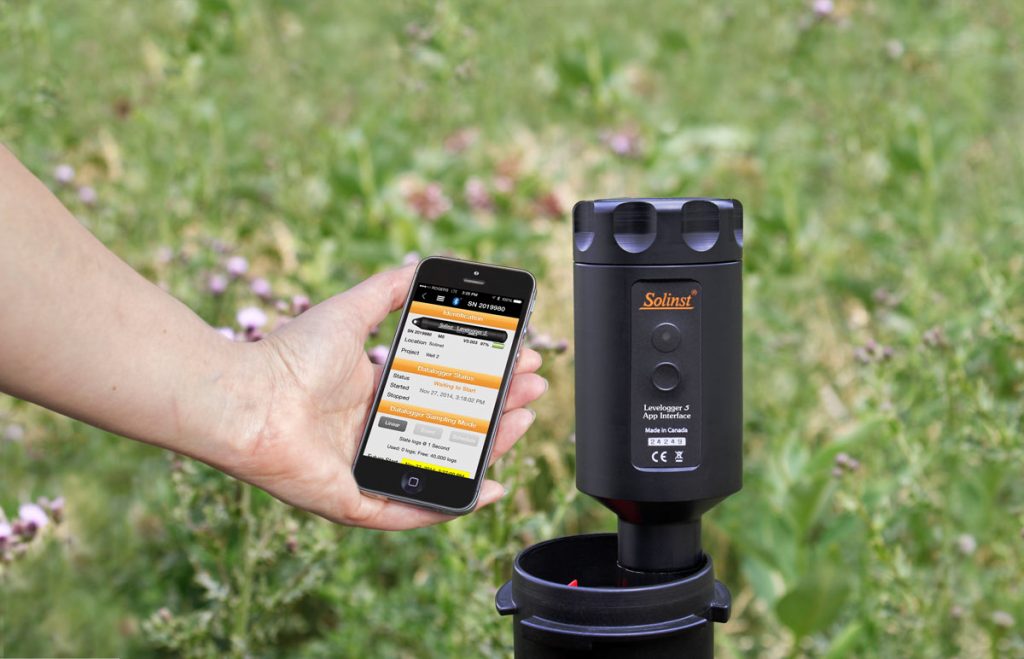 There are many water level dataloggers on the market. So how do you decide which one is best for you?
There are many water level dataloggers on the market. So how do you decide which one is best for you?
There’s a lot to consider.
First, you have to decide whether you want to go with a vented or absolute instrument … but let’s save that for a future conversation.
Let’s focus on absolute pressure sensors. They measure both water and barometric pressure, providing data that later needs to be compensated (don’t worry, we have an easy solution for that).
We have boiled it down to what we think are five major things to look for to ensure your application needs are met, and your water level monitoring project runs according to plan.
1. An accurate, durable pressure sensor.
Of course, you want your water level datalogger to have the most accurate pressure sensor … and you want it to stay that way. That’s why you need a durable sensor.
What a pressure sensor is made of is a huge factor in its durability. No matter what the material, pressure sensors/transducers are going to expand and contract when they are repeatedly exposed to different pressures and temperatures. Some materials are just better at handling this.
Some materials tend to be a little more “brittle”, and can even shatter with ice accumulation, or with over-pressurization, or a very sudden pressure change.
It is good to look for a sensor that has an over-pressurization rating as a safety factor. Also, look for one with a wide operating temperature range specification.
Hastelloy® is a material that meets these criteria. It has been categorized as a “superalloy” because of its durability and long-term stability. In turn, this provides long-term accuracy and more tolerance to being over-pressurized.
Hastelloy pressure sensors are used in all Solinst Levelogger 5 series water level dataloggers.
Although some pressure sensors are more durable than others, all will undergo some sort of sensor drift. We’ve prepared a Technical Bulletin that details what sensor drift is, and how to work with it: Understanding Pressure Sensor Drift.
2. Software that is ultra-friendly and saves you time.
First off, you want software that is super intuitive, allowing you to get your water level datalogger up and running quickly.
Software needs to be easy to use.
It should provide you with multiple programming options so you can tailor the logging regime to fit whatever you are trying to capture with your data. Programming options should be easily understood, along with starting and stopping the logger, and downloading the data.
Also helpful, is software that is “all-encompassing”. For example, Solinst Levelogger Software includes all these features in one download:
- Programming and logger set-up: from simple linear logging to a customized schedule with set future start/stop times
- Data management: download data from the datalogger, view the data in list or graphical format, easily export data for use in other programs
- Real time view: view live water level readings as they are being logged
- Data compensation: simply barometrically compensate water level data or perform other data adjustments with the use of a “Data Wizard”
- Diagnostic utility: perform self-checks to ensure your water level datalogger is working correctly
- Firmware upgrade utility: upgrade your water level datalogger with new firmware when it becomes available

Levelogger Water Level Datalogger Software is Intuitive and Easy to Use
It’s also a plus when the software is free – which it is from Solinst. All software and firmware releases and updates are free on Solinst.com. If you register, you’ll get notices with each new software/firmware release.
3. Flexible deployment options to suit your unique applications.
Whether you are monitoring water levels in a well, or tidal fluctuations on the Atlantic Coast, your water level datalogger should provide multiple options for deployment.
Simply put: a compact instrument is easier to deploy. It can fit into narrow wells, and can inconspicuously placed in surface water applications. Yet, it should also have enough weight on its own, so it doesn’t float when you are trying to monitor at a specific depth.
The water level datalogger should also have a built-in suspension system, such as an eyelet on the top cap. For simple deployment in a well, you can use wireline and hooks, or Kevlar cord and a secure knot, to simply suspend your datalogger in a well.
If you want to be able to view real time data, communicate and download data without removing your datalogger from down the well, dataloggers should be able to be deployed on communication cables, which allow just that (Solinst calls these Direct Read Cables).
Direct read communication cables can also allow you to integrate dataloggers into a telemetry system for remote real-time water level monitoring, or a data collection system using a communication protocol such as SDI-12.
But you don’t always want to monitor groundwater. Here’s a Technical Bulletin that provides details for deploying your water level datalogger in surface water applications: Long-term Open Channel and Surface Water Monitoring With Leveloggers.
4. Protection in your long-term projects and extreme conditions.
You need not only a durable pressure sensor, but also an entirely durable instrument. To be able to use your water level datalogger in marine or other corrosive environments, you need an instrument that can stand up in these conditions.
Having a housing that is made of a non-corrosive material, like stainless steel, is beneficial. But for long-term projects, having more protection is better. A corrosion-resistant coating on the body, like the Levelogger 5’s coating that is baked on using polymerization technology, allows you to keep your logger deployed for longer periods before maintenance is required.
And back to the Hastelloy pressure sensor…
Hastelloy, in addition to being very durable, is also highly corrosion-resistant. The pressure sensor is exposed to water, so this is a highly desirable feature.
Biofouling is another major issue faced in long-term deployment. In the right environments, things like barnacles and algae can build up on the water level datalogger body and sensors.

Levelogger 5 LTC protected by a Biofoul Screen
Extra biofouling protection is a good idea, and can come as an additional accessory, such as the Levelogger Biofoul Screen that fits directly onto the Levelogger body and protects the Levelogger sensors. Check out this case study that proves the Biofoul Screen concept: Biofoul Screens for Leveloggers Make a Difference in Salt Marsh Restoration Project
Your water level datalogger should also be easy to clean and maintain to keep it in good working order. Here is a very thorough document on maintaining water level dataloggers: Ensuring Proper Use and Maintenance of Leveloggers.
5. An easy way to get that data out of the datalogger.
You should have options for easy downloading in the field, or in the office.
A quick connection to your PC Software, and a click of a button to download the data.
With Leveloggers, this is done with either an Optical Reader (Desktop Reader 5 or Field Reader 5), or a PC Interface Cable connected to your Direct Read Cable. Both are available with USB connections to your PC.
The combination of an optical infrared connection with the Leveloggers and communication cables, and the USB connection to the PC, makes for fast and secure data transfer.
But, what if you don’t want to bring a laptop PC to the field?
Many companies have been taking advantage of the wide use of smart device technology, and developing Apps to communicate with their water level dataloggers – Solinst is no different.

Solinst Levelogger Connected to the Levelogger App Interface
The Solinst Levelogger App communicates with Leveloggers using Bluetooth technology. Download the App to your smart device, connect the Levelogger App Bluetooth® Interface to your Levelogger’s Direct Read Cable, and retrieve your data using the App. The data can be transferred from your smart phone to a PC.
Note: Solinst also offers the DataGrabber for quick and easy data transfer to a USB flash drive key in the field.
A few bonuses never hurt.
A few other bonus features to look for in a water level datalogger:
- High resolution, in addition to accuracy,
- Long battery life,
- Robust and reliable memory,
- Accurate temperature compensation and fast thermal response time,
- Rapid sampling rate option for high-resolution data.
The Growing Need for Water Level Dataloggers
The landmark legislation to regulate groundwater in California, is just one sign enforcement of water resource management is on the rise. With that, the demand for water level dataloggers will continue to grow – along with more water level datalogger options as new manufacturers enter the market.
We hope this article gave you an idea of what to look for when selecting your next water level datalogger.
On that note, the Solinst Levelogger 5 meets and exceeds these five features, and has numerous other benefits. So why not get a free quote or more information on Solinst Leveloggers for your water level datalogging needs?
